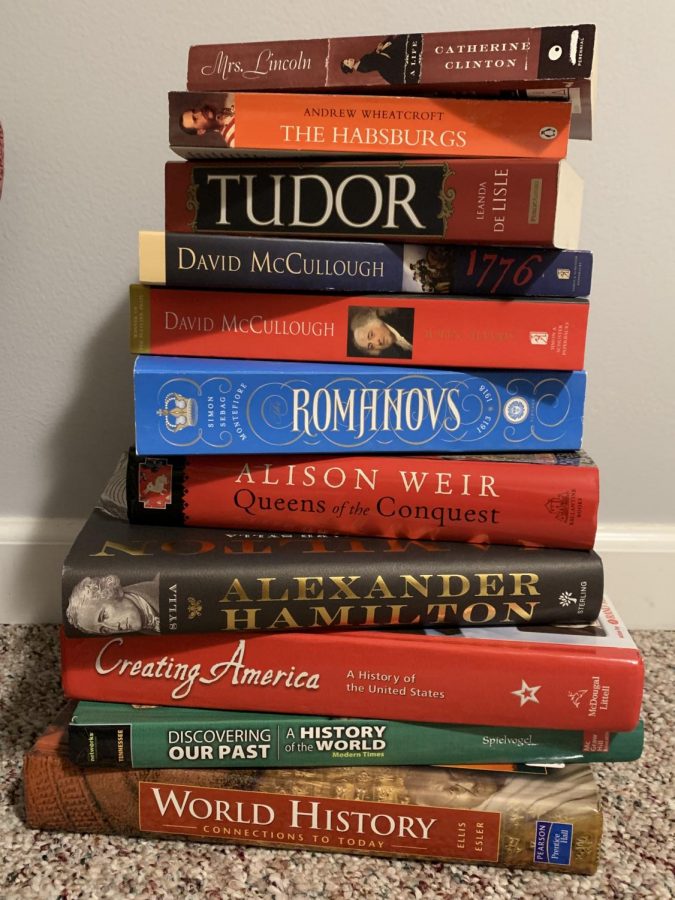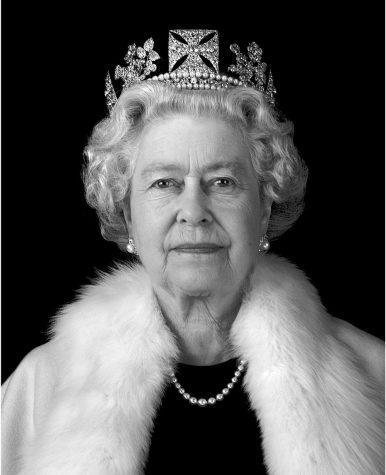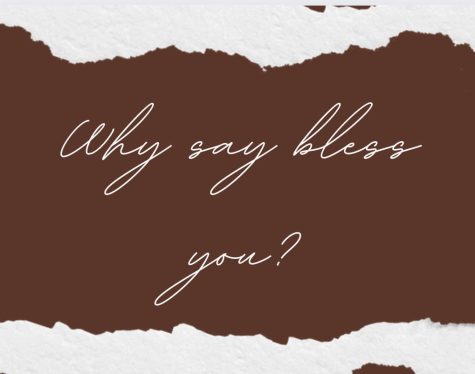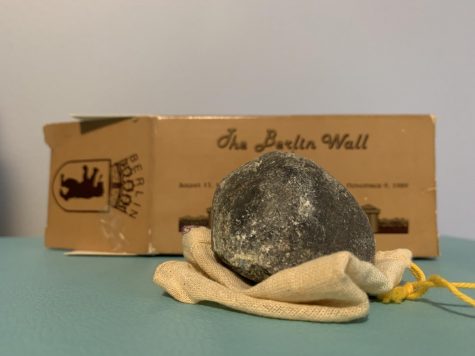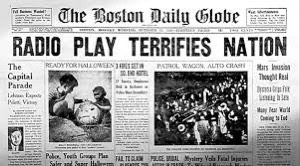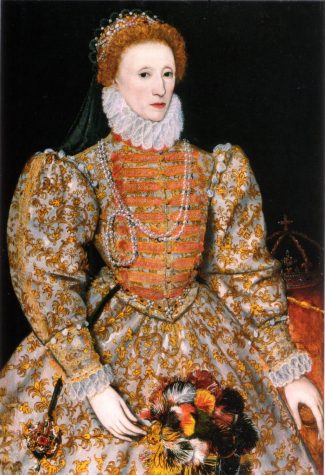There is a problem with only looking forward
This stack of books contains topics that are often skipped over in history classes.
September 17, 2021
Imagine you are driving a car. You are looking ahead to your destination, and you are excited. You can see it slowly getting bigger on the horizon. It is beautiful. The sun is shining, people are happy, and everything looks perfect.
Crash! Your car spins and spins until finally it stops and you are facing the opposite direction.
You weren’t using your rearview mirrors. You were only looking at your destination. You didn’t see the car coming up behind you. Your destination was the future. You were coming from the past. Everything was fine until you forgot to look behind you.
Our world is going to have a similar fate unless we remember our past. “History repeats itself” is a phrase that has been met with the rolling of eyes and scoffs for years and yet has proved itself true many times.
We need to learn our history and the events, good and bad, that have happened so we can learn and grow from them. Some schools don’t teach history anymore, and most schools that do teach it teach the bleached version that paints figures as black or white, good or bad, and doesn’t tell information that conflicts with that point of view.
This makes students view history as a cold, colorless dead thing instead of a living, breathing, rainbow tapestry that we are weaving with every breath we take.
As a high school student, I’ve seen the glazed eyes and vacant expressions of students during history class. They zone out because “Why should we have to learn about stuffy old people that are long dead?”
The result is a generation of young people that cannot speak intelligently about events in our own American history. A survey by the Woodrow Wilson National Fellowship Foundation in 2018 found that only 1 in 3 Americans would pass the citizenship test, a test that normally has a 60% passing rate.
How are young Americans supposed to vote intelligently if they don’t know basic civics?
The solution to this problem is simple. Tell the truth. Teach students the way history really happened. Teach students the colorful version of history.
A great example of this is the Broadway play “Hamilton.” The 2015 wildly popular show tells the story of Alexander Hamilton, one of the founding fathers. Before the show, he was most well-known for being on the ten-dollar bill, but today millions of people know his story.
While the show has some historical inaccuracies, it is for the most part a faithful telling of Hamilton’s life story.
This is just one example of a historical figure who has been generally forgotten by our history books. There are many throughout history.
Figures such as Alexander the Great, the Tudors, and even famous philosophers such as Galileo and Socrates. All figures who we know of but don’t really know.
Whole countries and even continents have been left out of our history books. This has created general ignorance and a feeling of indifference that allows single stories to thrive in our world.
The lack of knowledge about our own American history creates a dangerous situation in our country.
Some Americans don’t know the three branches of government, or even the year we won our independence from Britain and why. Some might ask why that’s even important. How are people supposed to vote intelligently when they don’t know why our country was founded and what our country stands for?
The US has had only 17 years of peace out of almost 250 years of independence. Yet, how many wars do we remember? The world wars, the civil war, and the revolutionary war? No one remembers the War of 1812, the Spanish-American War, or even modern wars such as Vietnam or the Korean war.
We forget thousands of veterans that have laid down their lives for our country and our freedom. We forget the reasons they fought and died. These reasons still apply today. We still argue over similar reasons. If only we would look to our past, we might see answers for our future.
These answers might include peace instead of war. Lives might be saved if only we listen to our past. This is why we should teach history in school, and teach it well.
In 100 years ours will be the history that people will be learning. What do we want to be remembered for? I for one do not want us to be remembered as the generation that made things worse because we did not look back. I hope we are remembered for how wise we were instead of how foolish.



